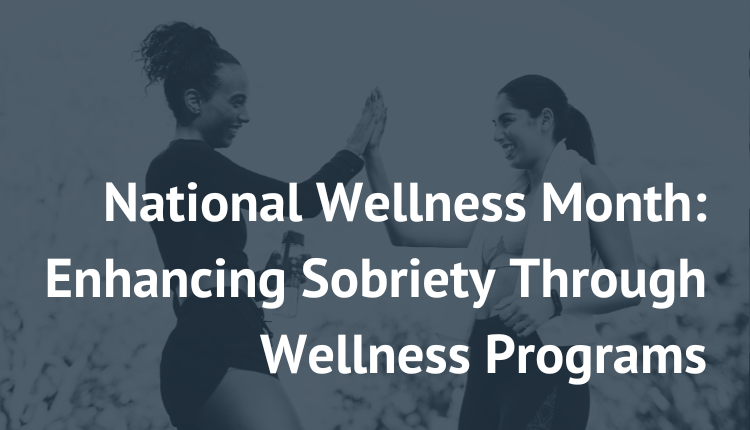Introduction
August is National Wellness Month, an ideal time to integrate wellness practices into recovery journeys. For individuals striving for sobriety, wellness programs offer a holistic approach that addresses physical, mental, and emotional health, supporting long-term recovery.
The Role of Wellness in Recovery
Wellness programs are essential in addiction recovery because they address various aspects of well-being. Anu Mathew, Medical Director at New Paradigm Recovery, emphasizes that these programs offer a comprehensive approach by combining physical activities, nutritional support, mindfulness practices, and mental health services, all tailored to meet the unique needs of individuals in recovery. According to Mathew, this holistic approach helps individuals develop healthier habits, cope with stress, and maintain sobriety over time.
Components of a Wellness Program
A well-structured wellness program includes various elements such as exercise, meditation, nutritional education, and therapy. Mathew points out that personalizing these programs is key to addressing the specific challenges faced by each person in their recovery journey. By empowering individuals to take control of their health and make sustainable lifestyle changes, these programs significantly enhance their overall well-being.
Research supports the effectiveness of wellness programs in recovery settings. A study published in the Journal of Substance Abuse Treatment highlights that participants who engage in wellness activities experience significant improvements in their physical and mental health. This holistic approach not only aids in immediate recovery but also provides the tools needed for long-term success.
Long-Term Benefits
The long-term benefits of wellness programs in addiction recovery are profound. According to an article by WebMD, these programs provide the necessary support and tools to help individuals maintain healthy lifestyle choices, which are crucial for sustaining recovery and preventing relapse. By fostering an environment of continuous growth and self-care, wellness programs help individuals build a strong foundation for lasting sobriety.
Conclusion
As National Wellness Month unfolds, it is an opportune time to explore the benefits of wellness programs in the context of recovery. By integrating wellness practices into daily life, individuals in recovery can enhance their overall health and strengthen their journey towards long-term sobriety.
At New Paradigm Recovery, wellness programs are integral to their holistic approach to addiction treatment. These programs are designed to support clients’ physical, mental, and emotional well-being through activities like yoga, meditation, nutrition counseling, and stress management techniques. The goal is to help individuals develop healthier habits, reduce stress, and build resilience, which are crucial for sustaining long-term sobriety. By addressing the whole person, New Paradigm Recovery’s wellness programs enhance overall recovery outcomes and promote a balanced, fulfilling life.
For more details, visit New Paradigm Recovery – Wellness Programs.
References
Smith, J., et al. (2023). Integrating wellness programs into addiction treatment: Outcomes and implications. Journal of Substance Abuse Treatment, 134(2), 102943. https://www.ncbi.nlm.nih.gov/pmc/articles/PMC9567584/
WebMD Health Services. (2023). August is National Wellness Month: Let’s Make Well-Being a Priority All Year Long. WebMD. Retrieved from https://www.webmdhealthservices.com/blog/august-is-national-wellness-month-lets-make-well-being-a-priority-all-year-long/
(2024). All About Wellness Programs. New Paradigm Recovery. Retrieved from https://nprecovery.com/all-about-wellness-programs/

